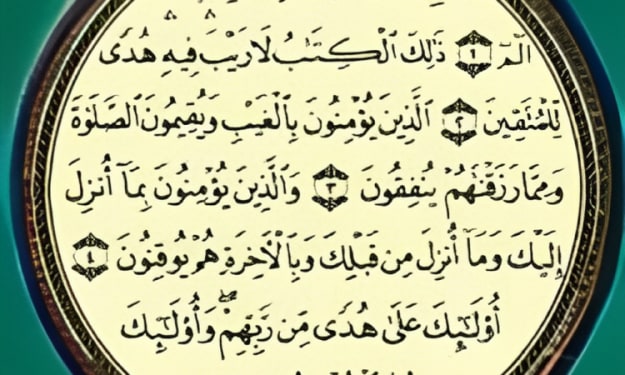
Surah Al-Baqarah, which is the second chapter of the Quran, does not specifically mention the detailed stories of Adam (peace be upon him). However, the Quran does provide information about Adam and his creation in various other chapters. Here is a summary of the key points regarding Adam mentioned in the Quran:
Creation of Adam: In Surah Al-Baqarah (2:30-39), Allah informs the angels about His decision to create a successor on Earth. When the angels question the wisdom of creating humans who will cause mischief and shed blood, Allah tells them that He knows what they do not. Allah then creates Adam from clay and breathes His spirit into him, commanding the angels to prostrate to Adam. All the angels obey except Iblis (Satan), who refuses and becomes arrogant.
The Test in Paradise: Allah places Adam and his wife, Hawwa (Eve), in Paradise, allowing them to enjoy its blessings freely but forbidding them from eating from a specific tree. Satan tempts them, causing them to eat from the tree, leading to their expulsion from Paradise.
Repentance and Forgiveness: After being expelled from Paradise, Adam and Hawwa deeply regret their disobedience and seek Allah's forgiveness. Allah accepts their repentance and teaches them the words of repentance. Adam becomes the first prophet, receiving guidance from Allah and passing it on to his descendants.
Progeny of Adam: Adam and Hawwa have children, including Cain (Qabil) and Abel (Habil). A conflict arises between the two brothers, leading to the first instance of murder when Cain kills Abel out of envy. Adam grieves over the loss of his son.
Lessons and Guidance: Throughout the Quran, there are references to Adam as an example of human weakness and the importance of seeking Allah's forgiveness. His story serves as a reminder that humans are prone to mistakes but can always repent and turn back to Allah for forgiveness.
While Surah Al-Baqarah does not provide an extensive account of Adam's story, these are the major aspects mentioned in the Quran regarding Adam and his role as the first human being and prophet.
Stories of Prophet Abraham (peace be upon him):
Surah Al-Baqarah does not contain detailed stories about the life of Prophet Abraham (Ibrahim in Arabic). However, the Quran does mention aspects of Prophet Abraham's life and his relationship with Allah in various chapters. Here are some key points regarding Prophet Abraham mentioned in the Quran:
Call to Monotheism: In several verses, the Quran mentions that Prophet Abraham was among those who were guided to monotheism, recognizing the existence and oneness of Allah amidst a society that worshipped idols and engaged in polytheism. He questioned the legitimacy of idol worship and sought the truth.
Destruction of the Idols: According to the Quran (Surah Al-Anbiya, 21:51-70), Prophet Abraham devised a plan to expose the falsehood of idol worship. He broke the idols in the temple, except for the largest one, and left the axe hanging around its neck. When the people discovered the broken idols, they accused Prophet Abraham, who responded by pointing out that the largest idol should be questioned. This event demonstrated the absurdity of idol worship and challenged the prevailing beliefs.
The Fiery Pit: The Quran (Surah Al-Anbiya, 21:68-70) narrates that the people plotted against Prophet Abraham, deciding to cast him into a fiery pit as punishment for challenging their beliefs. However, Allah commanded the fire to be cool and peaceful for Abraham, saving him from harm.
Building the Kaaba: The Quran mentions Prophet Abraham's role in the construction of the Kaaba, the sacred sanctuary in Mecca (Surah Al-Baqarah, 2:125-127). Allah commanded Prophet Abraham and his son Ishmael (Ismail) to purify the Kaaba and make it a place of worship for believers.
Sacrifice of Ishmael: The Quran (Surah As-Saffat, 37:100-111) recounts the story of Prophet Abraham's willingness to sacrifice his son Ishmael as a test of faith from Allah. As Prophet Abraham was about to sacrifice his son, Allah intervened and provided a ram as a substitute, showing the ultimate trust and obedience of Prophet Abraham.
These are some of the key events related to Prophet Abraham mentioned in the Quran. While Surah Al-Baqarah does not specifically contain a detailed account of his life, the Quran as a whole provides insight into his role as a prophet and his devotion to Allah.
Stories of Prophet Moses (peace be upon him)
Surah Al-Baqarah, contains several references to Prophet Moses (Musa in Arabic) and the Israelites. While it does not provide a comprehensive narrative of his life, it highlights significant events and lessons from his story. Here are some key aspects of Prophet Moses mentioned in Surah Al-Baqarah:
The Exodus from Egypt: Surah Al-Baqarah references the oppression of the Israelites by Pharaoh and their eventual deliverance through Moses. It mentions how Moses was sent as a prophet to the Pharaoh to demand the release of the Israelites from bondage and their journey towards freedom.
Crossing of the Red Sea: Surah Al-Baqarah recounts the miraculous event of the parting of the Red Sea, enabling the Israelites to escape from the pursuing Pharaoh and his army. As the sea was split, the Israelites crossed safely while Pharaoh and his army drowned when the sea closed back in on them.
The Revelation of the Torah: The Quran mentions that Allah granted Moses the Torah as a divine scripture and a guide for the Israelites (Surah Al-Baqarah, 2:53). It emphasizes the importance of following the teachings of the Torah and the obligation of the Israelites to uphold its principles.
The Worship of the Golden Calf: Surah Al-Baqarah describes how, during Moses' absence, some of the Israelites began worshipping a golden calf instead of Allah. This act of idolatry was severely condemned by Moses upon his return, highlighting the significance of monotheism and the rejection of false gods.
Lessons on Guidance and Accountability: Throughout Surah Al-Baqarah, there are reminders of the lessons learned from the experiences of Moses and the Israelites. The story of the Israelites serves as a cautionary tale, warning believers against disobedience, ingratitude, and the consequences of deviating from the guidance of Allah.
Prophet Moses' life incorporates these key events and teachings to emphasize important moral lessons and spiritual guidance for the believers. It also includes his upbringing, interactions with Pharaoh, and his leadership of the Israelites, other chapters in the Quran, such as Surah Al-A'raf, Surah Ta-Ha, and Surah Al-Qasas, provide further details.
About the Creator
Khalid
I am skilled at project management and content creation. I want to post stories about Islam and writings on cancer. I hope you enjoy my stuff and stories. Please subscribe if you enjoyed reading my story and would like to help me write more





Comments
There are no comments for this story
Be the first to respond and start the conversation.